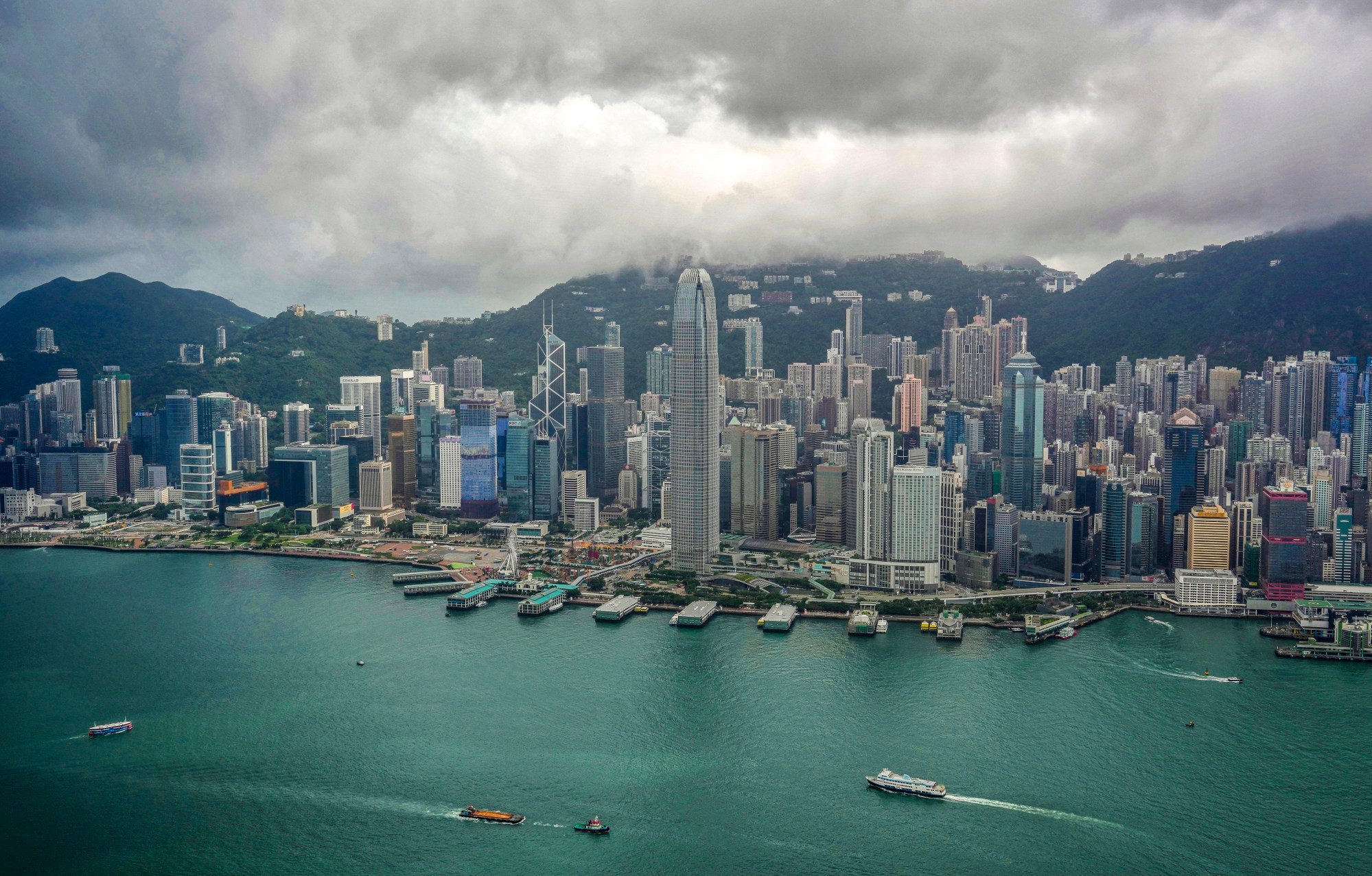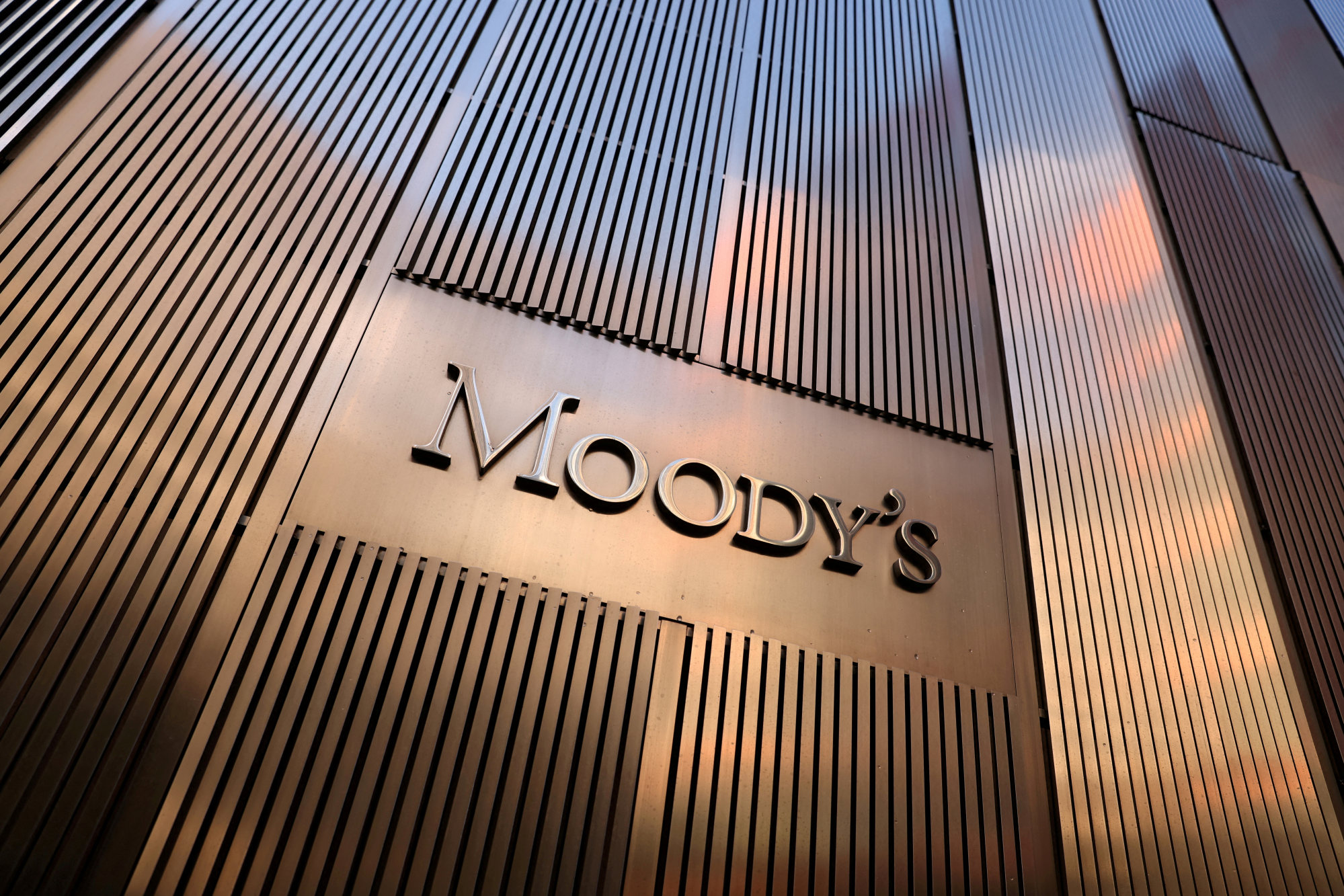
Exclusive | ‘High uncertainty’ ahead for Hong Kong in coming year, finance chief warns, but authorities will remain ‘alert and vigilant’ to market situation
- Paul Chan says government cannot change risks arising from external environment but will be firing on all cylinders to get economy going
- Financial secretary also takes aim at global ratings agency Moody’s for downgrading its outlook on Hong Kong
Hong Kong will double down on fixing the economy despite facing high external uncertainty in the year ahead amid continuing geopolitical tensions and high interest rates, the finance chief has said, while also expressing optimism that a softening property market will not trigger a crisis of confidence.
He also lambasted ratings agency Moody’s for downgrading its outlook on Hong Kong this week, saying it was doing its assessment through a rear-view mirror as the tremendous pressure on mainland China’s real estate market and the debts of some local governments were already under control.
“2024 will be a year of high uncertainty,” Chan said. “The main challenge to Hong Kong is the external environment. The higher-for-longer interest rates, the geopolitical tensions, and also the elections, say for example, in the United States”.
He added: “There’s not much we can do, except that we continue to be alert and vigilant to monitor the market situations, to identify risk signals if any … [We] must concentrate on doing our own work in terms of growing the economy.”
Hong Kong’s base interest rate remains at a 16-year high of 5.75 per cent, in lockstep with the US Federal Reserve’s drive to tame inflation.
Coming presidential elections could also fuel US-China tensions, with Taiwan going to the polls next month and the United States next November.
A recent legislative move in Washington to shut down Hong Kong’s economic and trade offices in the US was also adding to the concerns.
Chan said the government was “on the right track” to address development constraints including labour and talent shortages with targeted schemes, and would step up its efforts to attract firms to set up shop in Hong Kong.
The finance chief, now in his seventh year in office, is expected to deliver what could be his toughest budget yet next February, after earlier saying the deficit would significantly surpass initial estimates and reach HK$100 billion.
The city’s fiscal reserves stood at HK$661.9 billion as of October, down from HK$834.7 billion at the beginning of the financial year.
Hong Kong’s post-Covid economic recovery has also remained weak despite mega government campaigns to attract tourists and boost local consumption.
Last month, the government revised down its full-year economic growth forecast to 3.2 per cent from an earlier estimate of 4 to 5 per cent.
City leader John Lee Ka-chiu recently said he would explore ways to get residents to spend more locally, while the tourism minister suggested on Thursday that more events could be held to promote consumption.
But the scale of the expected budget shortfall has raised doubts for investors and homebuyers at a time of domestic and global uncertainty.

Government revenue from land sales this year is on track to hit a record low, while property prices have continued to fall despite measures rolled out in October to halve certain stamp duties for homeowners.
Chan said he was aware that the property market remained “comparative quiet” but he regarded slow home sales as an “orderly adjustment”.
“[It] won’t cause any confidence crisis in the property market or systematic risk to the financial system,” he said, while brushing aside online remarks that Hong Kong had now become a “relic” as an international financial centre.
The real estate sector has been putting pressure on Chan to remove more “spicy” property measures to reduce the deficit by stimulating home purchases.
Asked whether this was on the plate for his budget, Chan said the government would “monitor the situation” closely.
The government will commence a public consultation exercise on the budget in weeks.

The downgrading of Hong Kong’s outlook from stable to negative by Moody’s Investors Service sent shock waves through markets, with some fearing that it could increase the cost of borrowing for public enterprises and private companies.
The global ratings agency attributed the downgrade to the city’s close-knit relationship with the mainland, which Chan strongly rejected, stressing the links were instead “sources of Hong Kong’s strengths”.
Chan also said the agency had looked through the rear-view mirror in delivering an outlook on China that was “out of time”.
“Because of the policy measures rolled out by the central government, things are pretty much under control,” he said, referring to local government debt and the property downturn.
“I would rather argue that they should look at Hong Kong’s resilience in the economy, in the financial system, as well as the strong evidence that we have withstanding shocks.”


